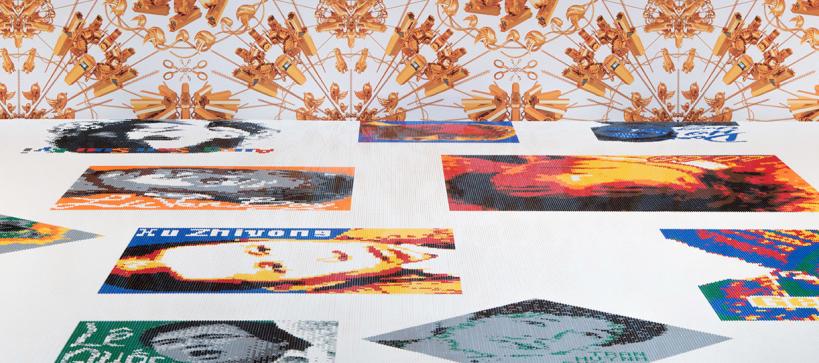
Detail of Ai Weiwei: Trace installation, photo by Robert Wedemeyer
Ai Weiwei: Trace
May 15–August 1, 2021

Detail of Ai Weiwei: Trace installation, photo by Robert Wedemeyer
May 15–August 1, 2021
This exhibition was on view at the Skirball
May 15–August 1, 2021
A moving depiction of courage in the face of authoritarianism, Ai Weiwei: Trace illuminates the power of resistance.
Created in 2014, when the famed contemporary artist was under house arrest, the monumental display portrays activists, prisoners of conscience, and advocates of free speech from around the world. On view at the Skirball are eighty-three of the work’s original 176 portraits, each one hand-assembled from thousands of LEGO® bricks. To Ai, the portraits pay tribute to “heroes of our time,” many of them ordinary citizens who have stood up against injustice in their communities.
Complementing the portraits is a striking wallpaper designed by Ai Weiwei entitled The Animal That Looks Like a Llama but Is Really an Alpaca. At first glance, the pattern looks merely decorative, but upon further inspection, you’ll discover hidden iconography like handcuffs and surveillance cameras. Look closely to find the alpacas—a mascot for freedom of expression in Chinese internet culture.

Ai Weiwei: Trace is organized by the Hirshhorn Museum and Sculpture Garden, Smithsonian Institution, Washington, DC.
Using our FREE mobile guide, hear insights from the artist and curator, as well as biographies of each of the prisoners portrayed in the exhibition. Content available in English and Spanish.
Ai Weiwei has spent nearly four decades exploring the relationships between art, society, and individual experience. His work, as prolific as it is eclectic, encompasses a wide range of media, including sculpture, installation, photography, film, painting, and architecture. He has extended his practice across multiple disciplines and through social media to communicate with a global public and to engage fellow artists with projects on a massive scale.
Ai attended the Beijing Film Academy and the Parsons School of Design in New York. He has received an honorary doctorate from the Faculty of Politics and Social Science, University of Ghent, Belgium (2010), as well as many international awards.
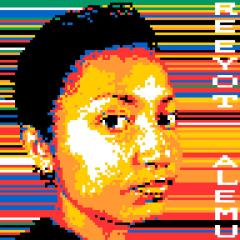
Ethiopia
Alemu is a journalist, founder of a publishing house, and editor of the magazine Feteh. Her articles cover social and political affairs, as well as poverty and gender issues. She was sentenced in 2011 under Ethiopia’s Anti-Terrorism Proclamation. In 2012, she received the Courage in Journalism Award from the International Women’s Media Foundation. She was released in July 2015 after serving four years in prison.
Bio last updated by Amnesty International in 2017.
Rendering courtesy of Ai Weiwei Studio.

United States
Snowden is a computer specialist, former employee of the Central Intelligence Agency, and former contractor for the National Security Agency. He disclosed thousands of classified documents revealing details of global surveillance programs. Snowden was charged with espionage and theft of government property. He currently lives in an undisclosed location in Russia and is considered a fugitive by American authorities.
Bio last updated by Amnesty International in 2017.
Rendering courtesy of Ai Weiwei Studio.
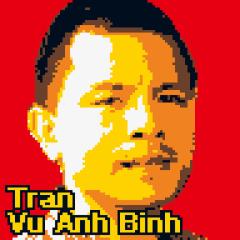
Vietnam
Binh, also known as Hoang Nhat Thong, is a songwriter, singer, and cofounder of the Patriotic Youth League, which promotes public consciousness of social justice and civic engagement. He posted songs on YouTube that expressed concerns about the Vietnamese government and the lack of social justice. He was convicted of conducting anti-state propaganda and was sentenced to six years in prison and two years of house arrest in 2012.
Bio last updated by Amnesty International in 2017.
Rendering courtesy of Ai Weiwei Studio.
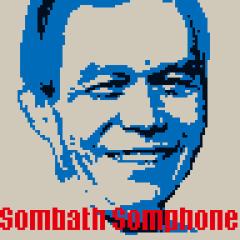
Laos
Sombath is the Executive Director of the Participatory Development Training Centre, which he founded to foster sustainable, equitable, and self-reliant development in Laos. He was taken away in 2012 in the presence of security personnel at a police post in Vientiane. Despite widespread calls for an investigation, he has not been heard from since.
Bio last updated by Amnesty International in 2017.
Rendering courtesy of Ai Weiwei Studio.
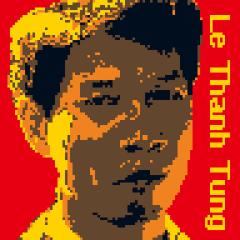
Vietnam
Tung is a former soldier, supporter of Bloc 8406, and blogger advocating for pluralism and constitutional changes. He posted articles for the banned Vietnam Freedom and Democracy Movement. He had been detained by police thirteen times previously and was convicted of conducting propaganda against the state.
In 2012, he was sentenced to five years in prison, reduced to four years on appeal, and four years of house arrest. He was arrested again in December 2015 and sentenced in 2016 to twelve years' imprisonment and four years of house arrest for activities aimed at overthrowing the state.
Bio last updated by Amnesty International in 2017.
Rendering courtesy of Ai Weiwei Studio.
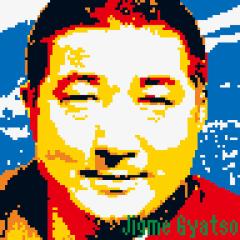
China
Gyatso, also known as Jigme Guri, is a Tibetan Buddhist monk. He was detained and beaten by Chinese police in 2008 and posted a YouTube video about his detention and the wider Chinese crackdown in Tibet. He was later detained again and held for six months without charge. He was re-arrested and sentenced to five years’ imprisonment on the charge of separatism in 2011. He was released in October 2016.
Bio last updated by Amnesty International in 2017.
Rendering courtesy of Ai Weiwei Studio.
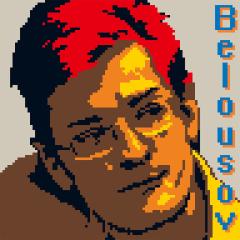
Russia
Belousov is a student in the Department of Politics at Moscow State University. He was involved in a “March of Millions” demonstration in Moscow's Bolotnaya Square in 2012, protesting alleged violations in the 2011 parliamentary elections and the reelection of Vladimir Putin. He was convicted of attacking police and inciting mass riots. In February 2014, he was sentenced to two and a half years in prison. He was released in September 2014.
Bio last updated by Amnesty International in 2017.
Rendering courtesy of Ai Weiwei Studio.
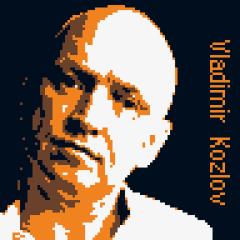
Kazakhstan
Kozlov is a journalist and politician who has been a leader of the democratic opposition in Kazakhstan and a candidate for his country's presidency. He was convicted of inciting oil workers to violence and, in 2012, was sentenced to seven and a half years in prison. The court also ordered that Kozlov’s property be confiscated and ordered him to pay ten thousand dollars (USD) in court costs. He was released in August 2016.
Bio last updated by Amnesty International in 2017.
Rendering courtesy of Ai Weiwei Studio.
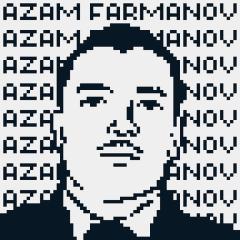
Uzbekistan
Farmonov is a rural development activist and a regional head of the independent Human Rights Society of Uzbekistan. He was defending the rights of local farmers who had accused district farming officials of malpractice, extortion, and corruption. He was convicted of extortion and, in 2006, was sentenced to nine years in prison. His sentence was extended by five years in 2015. In October 2017, Farmonov was released early from Jaslik prison in northwestern Uzbekistan after being imprisoned for nearly twelve years. He has testified to being tortured.
Bio last updated by Amnesty International in 2017.
Rendering courtesy of Ai Weiwei Studio.
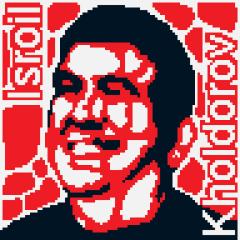
Uzbekistan
Kholdorov is a human rights activist and a regional chairperson of the Erk political party. He was charged with attempting to overthrow the constitutional order, distributing materials constituting a security threat, organizing and leading a banned organization, and illegally crossing the border. In 2007, he was sentenced to six years in prison and, in 2012, three years were added to his sentence. In November 2015, his sentence was extended for another three years.
His family was not informed of the new charges brought against him nor of the date of the trial. The trial took less than five minutes and Kholdorov had no legal representation.
Bio last updated by Amnesty International in 2017.
Rendering courtesy of Ai Weiwei Studio.
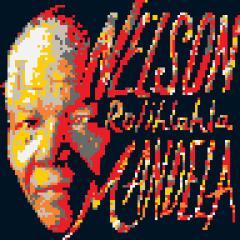
South Africa
Mandela was a South African anti-apartheid revolutionary and politician. He was sentenced on four counts of sabotage and conspiracy to violently overthrow the government. In 1964, he was sentenced to life in prison. He was released in 1990 and served as president of South Africa from 1994 to 1999. Mandela was awarded the Nobel Peace Prize in 1993, among more than 250 honors he received before his death in 2013.
Bio last updated by Amnesty International in 2017.
Rendering courtesy of Ai Weiwei Studio.
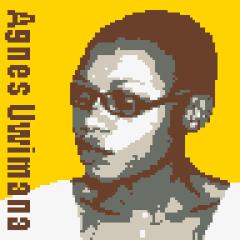
Rwanda
Uwimana Nkusi was the editor of the independent Kinyarwanda-language newspaper Umurabyo. Government authorities arrested her after she published opinion pieces criticizing government policies and alleging corruption in the run-up to the 2010 presidential elections. She was convicted of defamation and threatening national security. After serving several years of her sentence, she was released in June 2014.
Bio last updated by Amnesty International in 2017.
Rendering courtesy of Ai Weiwei Studio.
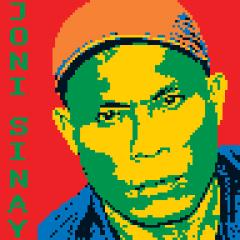
Indonesia
Sinay was among twenty members of the South Moluccan Republic group who were jailed for a 2007 protest in which they danced and unfurled a flag of their self-proclaimed republic in front of Indonesian President Susilo Bambang Yudhoyono in the provincial capital of Ambon. In 2008, Sinay was sentenced to fifteen years in prison for treason.
Bio last updated by Amnesty International in 2017.
Rendering courtesy of Ai Weiwei Studio.
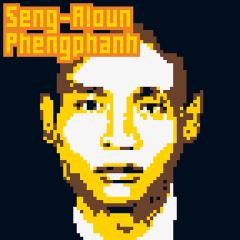
Laos
Seng-Aloun was a member of a student pro-democracy group that publicly called for human rights, the release of political prisoners, a multiparty political system, and elections for a new National Assembly. He was arrested for trying to peacefully display posters calling for economic, political, and social change in Laos. He was convicted of treason and was sentenced to twenty years in prison in 1999.
Bio last updated by Amnesty International in 2017.
Rendering courtesy of Ai Weiwei Studio.
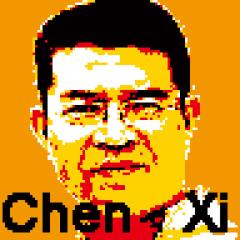
China
Chen is a signatory of Charter 08 and a leading member of the Guizhou Human Rights Forum. He was previously jailed in 1989 and again in 1995. His current charges are linked to political essays he published online. He was convicted of inciting subversion of state power and, in 2011, was sentenced to ten years in prison with an additional three-year deprivation of political rights.
Bio last updated by Amnesty International in 2017.
Rendering courtesy of Ai Weiwei Studio.
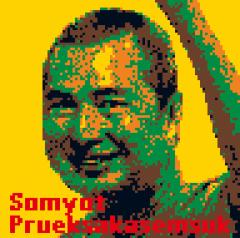
Thailand
Somyot is a labor rights activist and magazine editor. He published two pseudonymous articles that were critical of a fictional character interpreted by the court as representing King Bhumibol Adulyadej and was convicted of lèse majesté, the crime of criticizing the king.
He was arrested after launching a petition calling for parliamentary review of the lèse-majesté law and, in 2013, was sentenced to ten years in prison. However, in February 2017, the Supreme Court reduced his jail sentence to seven years in prison after it upheld the conviction.
Bio last updated by Amnesty International in 2017.
Rendering courtesy of Ai Weiwei Studio.
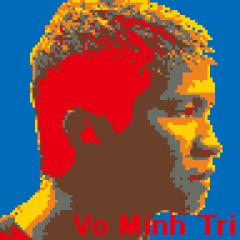
Vietnam
Tri, also known as Viet Khang, is a songwriter, singer, and founding member of the Patriotic Youth League. Authorities arrested him without charge after he released two songs calling on people to stand up against government crackdowns on protesters. He was convicted of spreading anti-government propaganda and, in 2012, was sentenced to four years in prison and two years of house arrest. He was released in 2015 with two years of probation.
Bio last updated by Amnesty International in 2017.
Rendering courtesy of Ai Weiwei Studio.
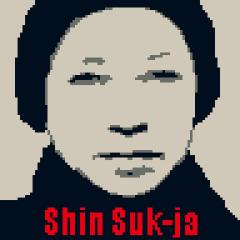
North Korea
Shin is a South Korean citizen. Her husband, Oh Kil-nam, moved his family to North Korea to work as an economist and to obtain treatment for Shin’s hepatitis. He requested political asylum in Denmark in 1986. The following year, Shin and her daughters were imprisoned, apparently because Oh did not return to North Korea. Shin was being indefinitely detained, and authorities have stated that she died of hepatitis.
Bio last updated by Amnesty International in 2017.
Rendering courtesy of Ai Weiwei Studio.
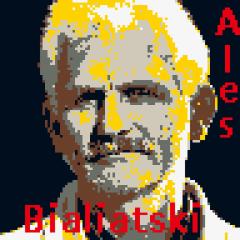
Belarus
Bialiatski is the chairman of Belarusian Human Rights Centre, Viasna, which monitors the human rights situation in Belarus and provides legal and other support to those whose rights are violated. He is the vice president of the International Federation for Human Rights. He was convicted of concealment of income on a large scale and was sentenced to four and a half years in prison in 2011. Bialiatski was released early in June 2014.
Bio last updated by Amnesty International in 2017.
Rendering courtesy of Ai Weiwei Studio.
Go on a virtual walk-through of the exhibition
Ai Weiwei discusses the role of artists in today's society in this video created by the exhibition organizer, the Hirshhorn Museum and Sculpture Garden.
KQED takes us behind-the-scenes of the making of the exhibition @Large: Ai Weiwei on Alcatraz, which first featured the portraits included in Trace.